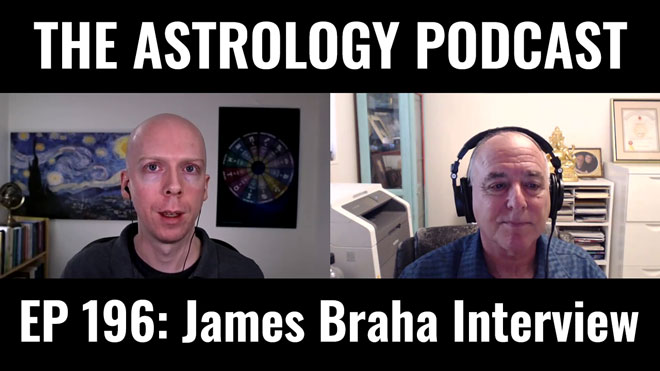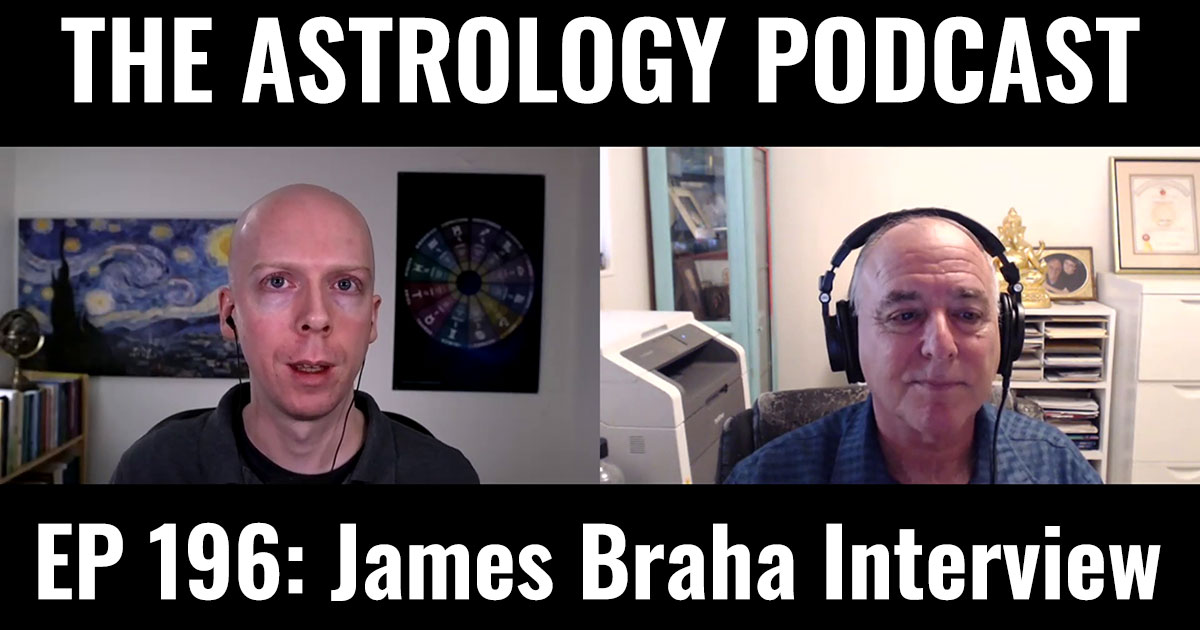
Episode 196 features an interview with Vedic astrologer James Braha, where we talk about his life and work in astrology.
James is the author of 6 books on astrology, including Ancient Hindu Astrology for the Modern Western Astrologer, and The Art and Practice of Ancient Hindu Astrology.
For more information about his work visit:
Our original discussion topic for this episode was supposed to be dasha techniques, but we ended up drifting towards talking about a bunch of other topics instead, since James has had such an interesting and varied life with astrology.
During the course of the episode we talk about how James got into astrology, what it was like studying with different teachers in India, and different observations he has picked up over the years through doing consultations.
One of the themes of the episode is the idea of lineage, and the difference between book learning versus having certain astrological doctrines transmitted directly from student to teacher.
This episode is available in both audio and video versions, and links to both are below.
Watch the Video Version of This Episode
Here is the video version of this episode of the podcast:
–
Transcript
A full transcript of this episode is available: Episode 196 transcript
Listen to the Audio Version of Our March Forecast
You can either play this episode of the podcast directly from the website or download it as an MP3 to your computer by using the buttons below:
Podcast: Play in new window | Download (Duration: 1:43:21 — 71.3MB)
